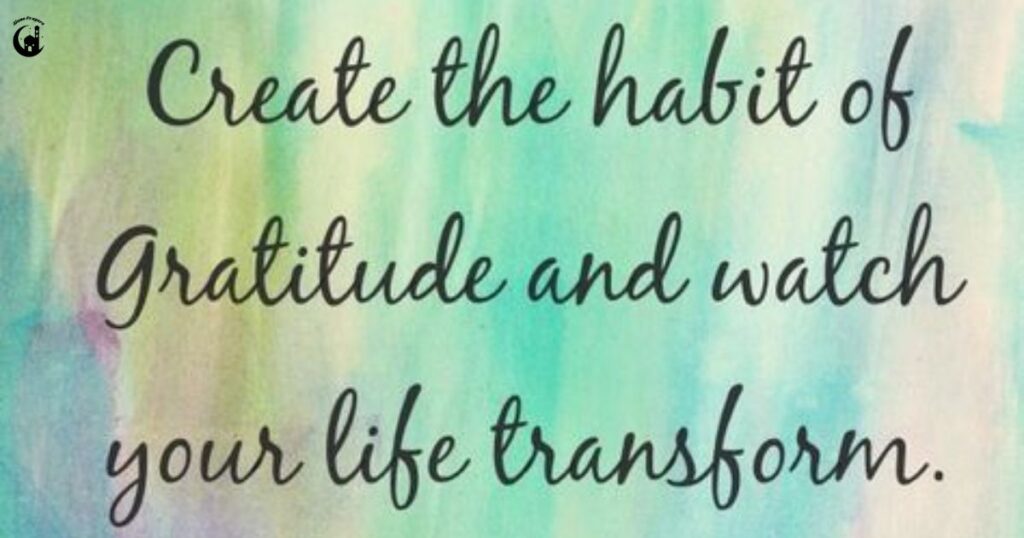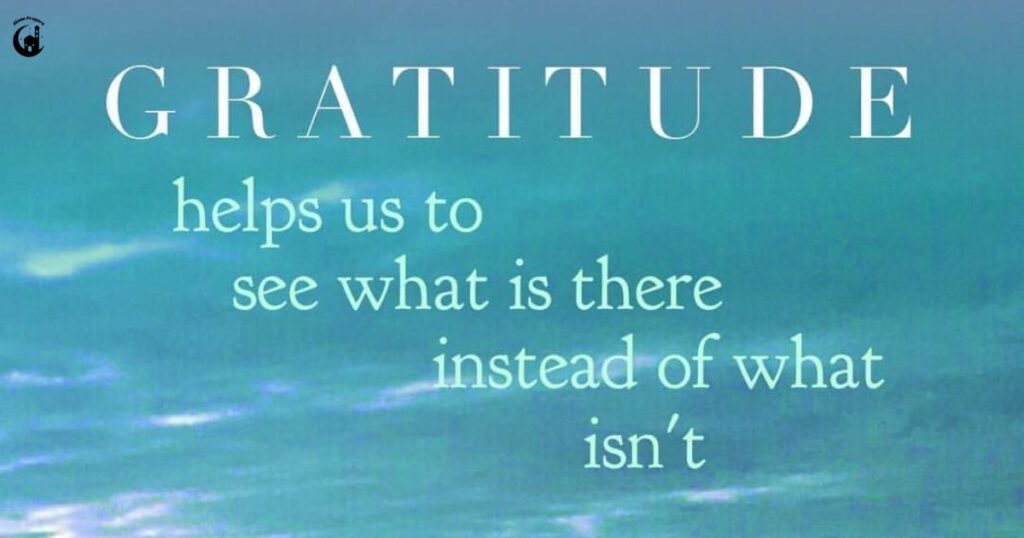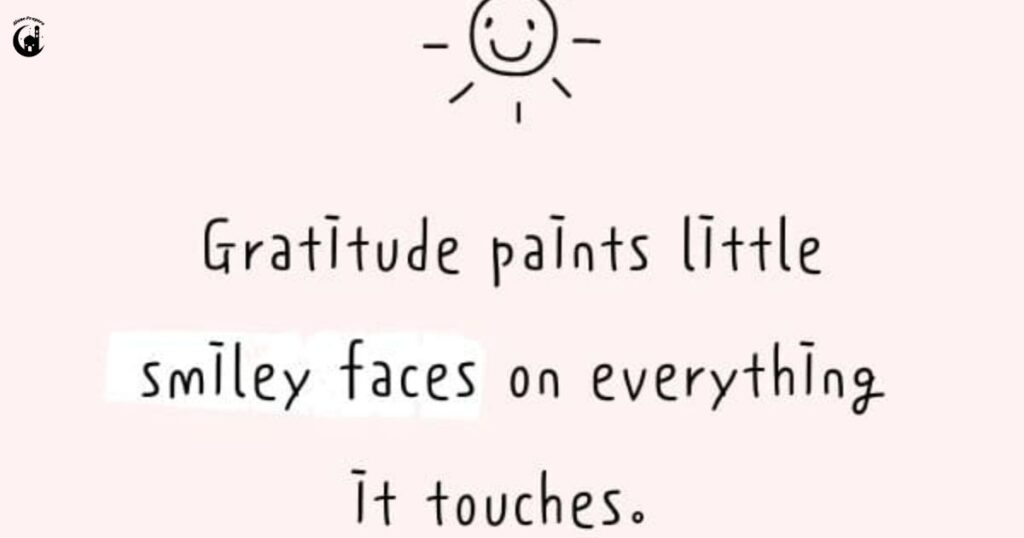What if one ridiculously tiny habit could shift your entire perspective on life? Not meditation for an hour. Not complex journalist rituals. Just one sentence. I have practices this simple daily habit to add more gratitude to my life for three years straight. It takes 10 seconds. Yet it’s transformed how I experience everything from chaotic evenings to ordinary Tuesdays. Most people know gratitude habits matter. They’ve heard the advice a thousand times.
But knowing and doing are different universes. Here is the truth: vague advice like “be more grateful” does not work. You need something concrete, something automatic, something so small you can not fail. This is that habit. A real story, a practical method, and benefits you’ll notice within weeks. Let’s dive into how this gratitude habit rescued one particularly terrible evening and why it’ll work for you too.
The Minor Tragedy

You drive home with the takeout. The aroma fills the car. Mouths are watering. Then you open the bag at home and discover half the order is missing.
Everyone needed to pack for a trip after dinner. The timeline was already knife-edge tight. No buffer existed.
The pressure created this suffocating atmosphere. Everyone felt it. Nobody said it, but we all thought: This evening is ruined.
The mood in that room was toxic. Frustrated. Rushed. Stressed. Annoyed at the restaurant. Annoyed at the situation.
This is exactly how small hassles pull everyone into a negative spiral. One person’s frustration infects everyone else. Snapping happens. Short responses multiply. The atmosphere curdles.
Then our simple daily habit to add more gratitude intervened.
The Daily Gratitude Habit
When I sit down to eat dinner, I say one thing I’m grateful for that happened today.
That is it. One sentence. No journal required. No app to download. Just one grateful statement before eating.
It takes 10 seconds. Anyone can do this: individuals, couples, families, roommates. You just need dinner (or any regular meal) and the willingness to share one grateful moment.
I have done this nearly every single day for three years. Through good days, terrible days, boring days, exciting days.
So there we sat. Frustrated. Rushed. Ready to spiral into negativity. Then I started our gratitude daily practice like always.
I said I was grateful for our shopping trip earlier that day. Nothing fancy happened during that trip. We just spent time together browsing a store. But that mundane hour became precious because we didn’t get time together later.
Everyone else contributed their grateful moment from the day. One person appreciated a friend’s thoughtful text. Another valued finishing a challenging workout. Someone else mentioned enjoying the morning coffee in peace.
The daily gratitude practice forced our brains to shift focus. Instead of fixating on what went wrong (missing food, lost time, rushed evening), we acknowledged what went right (time together earlier, friend connections, good workout, peaceful coffee).
Pick your trigger moment. For most people, dinner works perfectly. You are already doing it daily. Just add one sentence before eating. That is the habit of attaching a new behavior to an existing routine.
The trigger matters more than the timing. Choose something you do every single day without fail. That creates automatic consistency.
Alternative triggers:
- First sip of morning coffee
- Brushing teeth before bed
- Sitting at your desk to start work
- Getting into bed at night
Why It Works

Bad days happen to everyone. I have had plenty. Days when everything goes sideways. When projects fail. When people disappoint you.
But here is what changed with my daily gratitude habit: No matter how awful the day was, I still identified something good for at least a few seconds.
Not one day passes without me specifically stating something positive happening around me. Positive thinking genuinely does open your eyes to opportunities you’d otherwise miss.
Each individual grateful moment seems insignificant. One day you are thankful for good weather. Another day you appreciate a stranger’s smile.
Individually, these moments feel small. Almost pointless.
But the cumulative effect is massive. After practicing this gratitude habit for a month or two, something shifts fundamentally. You start recognising patterns. You begin realising that almost every day contains good moments.
Discovering What Actually Makes You Happy
- Time spent with friends and family
- Something nice someone said to me
- A particularly good workout that day
- Beautiful weather during a walk
- Finishing a project I did been postponing
- A genuinely interesting conversation
I am not claiming monetary things do not matter. They do. Financial security reduces stress. But there is something deeply comforting in realizing the moments you’re actually grateful for each day are free. Your day-to-day happiness doesn’t require wealth. It requires attention.
That changes your brain. Neuroplasticity research shows repeated attention patterns reshape neural pathways. You’re not just thinking grateful thoughts. You’re building a grateful brain.
I learned about habit stacking from James Clear’s work. The concept is brilliant: Attach a new habit to an existing behaviour.
I stacked my daily gratitude practice on top of eating dinner. I was already eating dinner every night and i did not need to remember a new behaviour separately. The dinner itself became my trigger.
The right behavioural trigger matters enormously. Choose something you literally cannot forget. Something that happens daily without fail.
Practice Gratitude

Everyone says “be grateful.” Okay, sure. But how exactly?
It’s like when people say “live in the moment.” Great advice. Totally true. But what does that actually look like when you’re standing in your kitchen on a Tuesday?
Gratitude suffers from the same problem. It’s an abstract concept. A quality everyone accepts you should cultivate. But concrete daily actions? Those get fuzzy fast.
This simple daily habit to add more gratitude to your life answers that question. It transforms abstract virtue into concrete behaviour. You know exactly what to do: Say one grateful statement at dinner. No ambiguity. No confusion.
Positive psychology research overwhelmingly supports gratitude practice. Studies show it improves mental wellness, relationships, sleep quality, and physical health.
This is where most people fail. They understand gratitude theoretically and they intellectually accept its benefits. They might even feel inspired after reading about it.
Then they do… nothing. Because “practice gratitude” remains vague.
This habit solves that problem. You’re not trying to “be more grateful” generally. You’re saying one specific sentence at one specific time.
No perfect time exists to begin. Not Monday. Not New Year’s.
Tonight. Start tonight at dinner.
Adjust the practice to fit your rhythm. Maybe you prefer mornings. Maybe you live alone and prefer silent gratitude. All valid.
The core remains constant: One statement. One time. Daily.
I notice positive moments more quickly now. My brain automatically scans for grateful moments throughout the day because it knows dinner is coming. That anticipation changes how I experience everything.
My overall life satisfaction has measurably improved. I am happier, calmer, more appreciative, less reactive to frustrating moments.
Read Related Article: Finding Refuge: Why the Name of the Lord Is a Strong Tower for Every Believer
Conclusion
One sentence at dinner. Three years of nearly daily consistency. That is my entire simple daily habit to add more gratitude to life. Nothing fancy. Nothing complicated. Just acknowledging one grateful moment before eating. The results? Daily positivist guaranteed. Cumulative joy that compounds monthly. Recognition that happiness comes from free moments, time together, kind words, good workouts, simple pleasures.
The smallest habits genuinely create the biggest changes. Not through intensity but through sustainability. Tonight at dinner, say one thing you’re grateful for. Tomorrow night, do it again. Keep going. That’s the whole system. Stupid simple means anyone can do this. This gratitude habit has transformed my long-term happiness more than any ambitious resolution ever did. What will you be grateful for at dinner tonight?
Frequently Asked Questions
What if I forget to practice my daily gratitude habit?
Don’t stress about perfection. Just resume the next day without guilt. Habit consistency comes from persistence, not flawless streaks. Missing occasionally doesn’t erase your progress or benefits.
Can I practice gratitude at times other than dinner?
Absolutely. Dinner works well because most people eat daily, but choose any consistent trigger. Morning coffee, bedtime, commuting, whatever you do religiously works perfectly for gratitude implementation.
How long before I see results from daily gratitude?
Most people notice mood improvement within 2-4 weeks. The cumulative effect becomes dramatic after 1-2 months of consistent practice. Benefits compound progressively, not overnight.
Should I write down my grateful moments or just say them?
Either works. Saying them aloud feels more natural and requires zero tools. Writing creates a record you can review later. Choosing based on preference consistency matters more than method.
What if I can not think of anything to be grateful for?
Start ridiculously small. Comfortable bed. Hot shower. Breathing freely. Food to eat. These basics count. Even terrible days contain small mercies worth acknowledging through daily appreciation.
